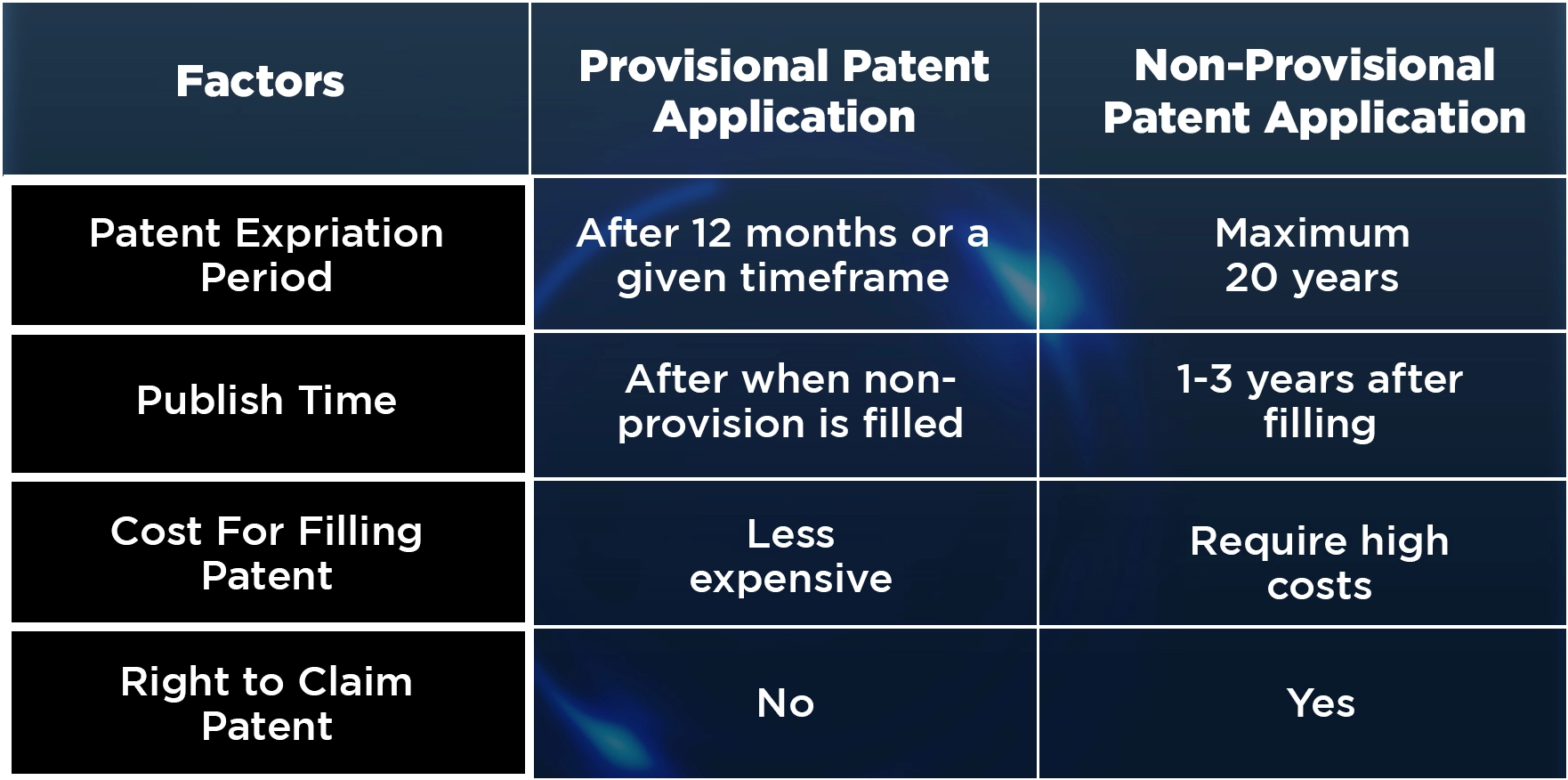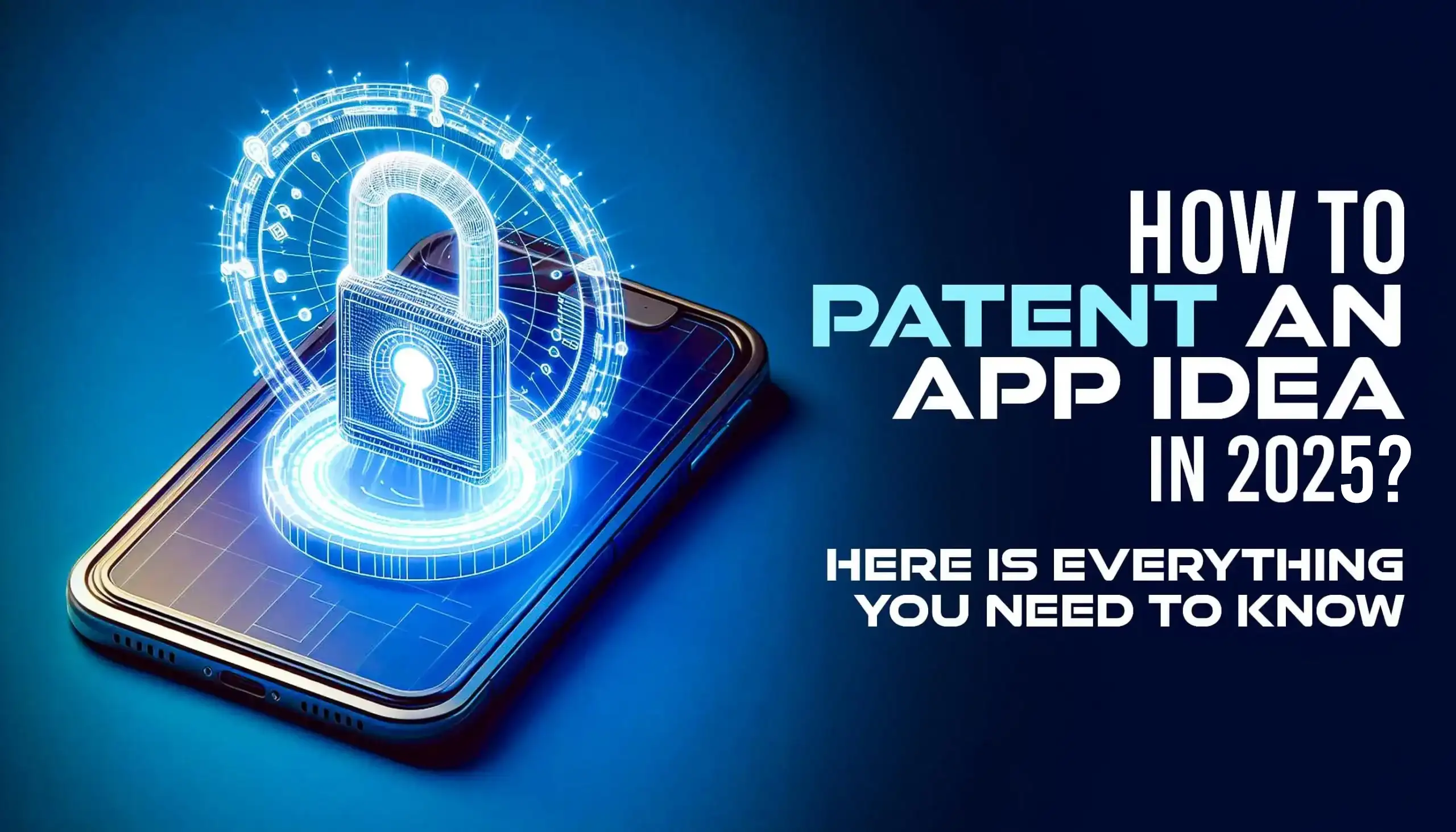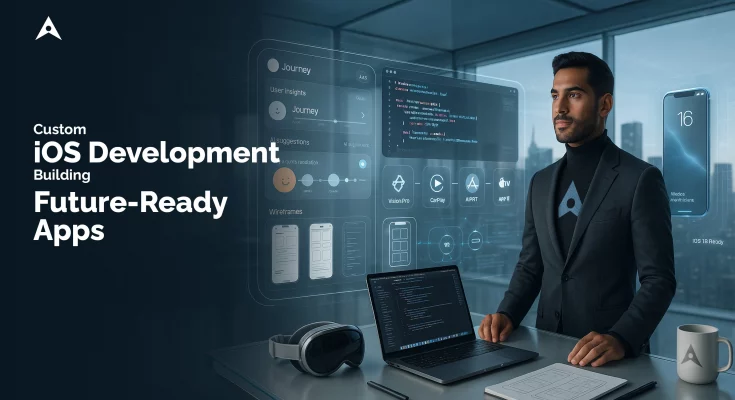In 1994, Apple objected to Microsoft that it had stolen their GUI idea. The case grabbed huge headlines and market attention. But interestingly, the verdict was in favor of Microsoft.
The reason- Apple hadn’t patented its GUI idea.
So, if you think you have an incredible mobile app idea but are afraid of getting copied by competitors, it is wise to get it patented.
In the current age of digital transformation, mobile apps have become a powerful software product for consumers and businesses. Facebook, WhatsApp, Snapchat, Instagram, PUBG, TikTok, YouTube, and Tinder, are numerous mobile apps which turned into billion-dollar app concepts due to their uniqueness and innovation.
However, as the mobile app market is getting competitive, securing your valuable app concept is a top concern. After putting tons of effort and investment, if your app concept has been already stolen by someone else, your billion-dollar app idea would be worthless.
Therefore, businesses and companies seek to patent an idea for an app and safeguard their intellectual property rights to avoid copyright infringement and run smoothly in the market.
If you are also tense about protecting your business model and need help on how to patent an app idea, here in this guide we will tell you everything that you need to know. By the end of this article, you will learn many important things to make the right decision and save your valuable money and resources.
So let’s get started.
Table of Contents
What is Meant By Patent an App Idea?
In general terms, a patent is an exclusive right that is granted to any invention. This right is fully owned by an individual or company that has developed a first-of-its-kind product. Similarly, patent an app idea is to patent the original app concept which is completely unique in the market. A mobile app patent is an intellectual property right that protects your app from unauthorized copying, non-consensual, and illegal use.
Apart from this, patented mobile app restricts other individual or companies from making a clone or false claims. When a mobile app gets successfully patented by a concerned authority, it is then given a unique patent code. Through this code, one can verify a patented mobile app concept and ensure it is original.
What Are The Types of Patent Applications?
There are mainly two kinds of patent applications for mobile apps.
- Provisional Patent Application: It is not an actual patent. It works for a particular period that allows the inventor to test and complete the concept before filling out the full patent application. The mobile app owner or inventor gets the patent rights to their app idea when they present the full-fledged form of the developed idea.
- Non-Provisional Patent Application: This is the actual application for owning a patent for a mobile app concept or any other intellectual property. A competent authority grants patent rights once they verify all the related things. Generally, non-provisional patent application takes much more time compared to provisional. This is because it involves many processes and verification by the patent office.

Why Should You Patent Your Mobile App Ideas?
In the modern era, mobile app works out as a highly valuable digital product for businesses. Out of the entire 8 billion world population, there are around 6.92 Billion smartphone users, which comprises 86.29% of the global population. Source
So if somehow you ignite new mobile app idea in your mind and come up with a revolutionary app concept that has the potential to disrupt the market like Facebook, WhatsApp, TikTok, or PUBG. Then, it is better to secure your idea and take an edge over the competition.
Patent an app idea gives you the legal right to claim your app as an original product. Having an official app patent restricts others from copying or stealing your app. It gives you the right to get compensation from an individual or anyone who attempts to unlawfully copy or make a clone of your model. Here are the top benefits of patenting an app:
- Safeguard your unique mobile app ideas from getting copied or exploited by unauthorized people.
- Get the right to take legal action against anyone who releases the same app before or after your app launch.
- Help in raising funds from investors by having an officially patented app idea.
- Establish trust and reputation in the market and take competitive advantage.
- A patent can be monetized through licensing agreements. You can allow others to use your patented technology for a fee, generating revenue for your business.
How To Know Whether Your Mobile App Idea is Eligible for Patent?
It might feel exciting when you have an amazing mobile app development concept. However, you should be aware of the fact that currently there are 8.9 Million mobile apps in the world. Out of them, Google Play Store has 3.553 million and Apple App Store holds 1.642 million apps. (Source)
Hence, in the present mobile-driven scenario, getting an original or fully unique app idea is not so easy. You can’t come to the conclusion immediately that your app is 100% original and innovative.
There is a high chance that your app idea has already been developed or registered before you plan out. Therefore, before you step forward to apply for a patent, you should properly know whether your app idea is eligible for a patent or not. For this, you should consider the following things
1. Your App Idea Should be 100% Original and Unique
Simply having a great mobile application doesn’t constitute it to be unique. You might come with an existing or already-running application but with a better version. Thus, discovery phase is important for mobile applications to check if your mobile app is completely unique and contains features or solutions which couldn’t be found in any apps. You can’t come up with an app concept with added features. To become eligible for an official patent, its architecture, design, or kind of problem-solution should be completely unique.
2. It Must Be At The Level of Invention
Mobile app development could also be an invention provided you build something different. If your mobile application offers unprecedented solutions, it might be considered an invention and the right for getting a patent. You should take a look at the portfolios of top mobile app development companies to analyze where your app stands out in terms of innovation.
3. It Shouldn’t Be A Clone App
As we know the number of apps is tremendously huge. Most apps we found in the market are somewhat similar to one another in some aspects. Therefore, your app idea can’t be eligible for a patent if it is a clone or modified version of other apps. For instance, developing an e-commerce app like Etsy & Amazon with some different features doesn’t allow you to patent an app idea. You need to partner with a leading mobile app development company in USA to build a new feature-loaded app according to the needs of target users.
How to Check Whether Your App Idea Has Already Been Patented or Not?
To see if your app idea has already been patented, you can do a few things. First, you can look online using websites like the United States Patent and Trademark Office (USPTO) or Google Patents. There, you can search for similar apps to see if someone already has a patent for something like yours. You can also check on the World Intellectual Property Organization (WIPO). It has all the data relevant to international patents.
Another way is to explore app stores like Google Play Store, Apple App Store, etc. And see if there are any similar apps. Sometimes, existing apps might be patented or have patents pending, so it’s good to check them out.
Lastly, you might want to talk to a patent lawyer or expert. They can help you search more thoroughly and figure out if your idea is unique or if there might be patent issues.
When Should You File Patent Application for Your Mobile App Idea?
Timing matters when it comes to patent an app idea. Usually, it’s best to file a patent application as soon as possible after you’ve come up with a unique and innovative concept for your app.
Why the rush? Well, patents work on a first-come, first-serve basis. If someone else files a similar concept before you, they might get the patent rights, which could stop you from developing your app the way you wanted.
So, once you’re confident that your mobile app is something new and original, it’s smart to start the patent application process. This protects your idea and gives you the legal right to use and develop it without worrying that someone else might claim it.
Remember, it is not who invented first, but who filed a patent application first that determines the patent rights. Hence, the earlier you file, the better chances you have of securing your idea!
Requirements Before Filing For Patent An App Idea
Having a unique mobile app concept is not a guarantee of getting patent. The patent of an app idea is granted not to one who has first invented the concept but to one who has first applied for a patent.
Your unique mobile app concept deserves intellectual property rights only when you have officially applied for it to a concerned authority. There are certain requirements that you need to have before applying for a patent.
1. Make Sure Your Idea Is Completely Original
The purpose of granted patents is to safeguard and protect the inventions only. It doesn’t restrict anyone to work with the same concept which is already available in the market (provided that there is no patent claim for the same product).
Therefore, you need to conduct extensive market research and go through a deep product design & discovery phase. It will allow you to ensure your app is completely unique. If it is found to be similar to any other mobile application, the patent office can reject your patent application.
Read More: Product Discovery Phase: A key to Build Revolutionary Products
2. Arrange Required Documents
To patent an app idea requires tons of paperwork and documentation. There are some different rules for mobile app patents in different countries. Therefore, you need to properly research and determine the documents require for patenting a mobile app idea. In most cases, you will need the following documents.
- Oath/Declaration form
- Information Disclosure Statement
- Entity Status Form
- Application Data Sheet (ADS)
- Specification
- Patent Cooperation Treaty (for International Filings)
- Drawings
- Maintenance fee Sheet
- Cover Sheet
3. Determine What You Want To Patent
Mobile app is a complex and broad software product. It contains several technical and non-technical elements to make it a fully functional product. Therefore, to apply for a patent app, you have to specifically define what exactly you want to patent in your mobile application. However, here are some popular aspects or things that you can patent. You can also take help from a mobile app development company for analyzing this aspect.
- App concept
- Interaction with the server
- Database creation
- Interaction between devices
- Presenting information on a smartphone
- Third-party server involvement
- Server processing
- Networking
- Security and authentication tasks
- User identification
- Data pushing
- Mobile interface processing
- App design
How to Patent A Mobile App – Steps To Follow

Patent an app idea is a completely legal process. So, there are certain steps you need to follow to successfully get intellectual property rights to your mobile app asset.
Step 1: Find & Consult A Patent Lawyer
Applying for a patent is a high-end litigation process, You need to present everything in a well-defined and properly written form for hassle-free application approval. Therefore, you should find and consult a patent lawyer or a legal professional who holds years of experience in the patent process. This person will guide you and take the lead until you successfully patent your application and finally receive your patent approval.
Step 2: Choose the Patent Authority
Every country has a dedicated government body or legal authority for granting patent rights for intellectual property. Their policies and procedures for patent application may also differ from each other. Therefore, depending on your location or preferences, choose the authority where you would be applying for your mobile app patent. Below are the popular patent offices which provide patent rights for mobile applications and other technical intellectual property.
- USPTO -The United States Patent and Trademark (For USA)
- IPO- Indian Patent Office (For India)
- WIPO-World Intellectual Property Organization (For International)
Step 3: Prepare With All The Requirements
As described earlier, how to patent an app idea involves several key steps and tons of documentation. You need to arrange various documents and legal papers. So before you step into officially applying, make sure you are ready with all the mentioned things as per the latest patent application policy. For this, you need to cross-check with the concerned patent authority.
Step 4: Do An In-Depth Patent Research
Now conduct in-depth research to find out whether your app concept is already in the market and patented as well. This will ensure your app concept or thing that you want to patent is fully unique and not patented already by anyone else. For this, you should explain the app details securely to the development team and your patent lawyer.
They will assist you to ensure there are no other similar ideas already in the market that you are going to patent. However, this is the stage where most app owners commit mistakes by not giving accurate app details. As a result, it leads to the wrong decision. Therefore, app owners should also use the effective ways to explain the app idea to the app development team.
Step 5: Determine The Type of Patent Application
As we discussed earlier there are two ways to apply for patent application-provisional and non-provisional patent application. Based on your goals and project scope decide which type of patent application suits whether provisional or non-provisional patent. Here, keep in mind that each type of patent application has different provisions and rules. Therefore, you should properly choose it before moving forward with the official procedure.
Step 6: File Your Patent Application
At last, once you are all prepared, you should file the patent application at the USPTO, WIPO, or other patent offices which your patent attorney has advised. The patent filing procedure might be a tiring and complex process. So taking help from your patent lawyer will ease this process. And after submitting your patent application file, you now have to wait for patent approval.
Read More: Accelerate Your Valuable App Idea By Picking Right Mobile App Development Company
How Much Does It Cost To Patent A Mobile App?
The cost of a mobile app patent varies depending on several factors and the type of patent application. For instance
- Patent search cost
- Patent application fee
- Elementary filing fee
- Patent attorney fee
- Category of patent application
Generally, the cost for provisional patents might go somewhere between $2000-$5000. And if you choose the non-provisional patent application, it might cost you around $10,000-$15,000.
Who Doesn’t Need To Patent Mobile App?
To patent an app idea is definitely a good and reliable method to safeguard your intellectual property. However, not every app owner needs to patent their mobile apps. In fact, mobile app patent is meant for very specific app owners.
If you are a startup, entrepreneur, SMB, or SME, it won’t be affordable for you to bear the cost to patent an app idea along with the cost of mobile app development. There are many drawbacks and disadvantages associated with patenting such as
- Patent increases additional costs
- It takes time to get a patent an idea for an app
- There is no surety of protection
- Claiming for mobile app copyright or patent infringement incurs extra costs
- An app concept may come with a mixed version
Therefore, patent an app idea is not recommended for startups, SMEs, SMBs, and individual app owners. It is because they run on limited resources and costs. They have to spend money to hire mobile app developers and other related resources.
What Are The Alternatives to App Patents?
If you have a cool app concept but don’t want to go through the process of getting a patent, there are other ways to patent protection.
One alternative is to keep your out-of-the-box idea a secret. This means not sharing it with anyone without a confidentiality agreement. By keeping it under wraps, you reduce the chance of someone else copying your app concept.
Another option is to copyright an app idea. Copyrights can cover the specific code and design elements of your app. This won’t protect the idea itself, but it safeguards the actual content and layout of your app.
Conclusion
Patenting a mobile app is an intelligent and future-proof method to safeguard your innovation. It not only restricts your competitors from stealing or copying your mobile app. But also help you establish your brand authority in the market by having an official patent right.
However, since patent an app idea takes huge time, cost, and unproductive efforts, it is only recommended for business entities that have a large-scale project meant for the future and can afford the cost to patent an idea for app.
FAQs
Q1. Can you patent an app idea and make money from it?
Yes, you can patent an app idea, which gives you legal rights to protect it from others copying or using it without your permission. If your app idea is unique and gets patented, you can potentially make money from it. Patents allow you to license your idea to others for a fee or develop and sell the app yourself, generating income from sales or partnerships.
Q2. How much does it cost to patent an app idea?
There is no specific estimation since the cost depends on various factors. But, on average, the cost to patent an app idea might go around $2,000-$5,000 for filing a provisional patent.
Q3. What are the offices that grant patents for mobile apps?
Every country has its own patent office or authority. To patent an app idea in USA is USPTO, In India, IPO, and for global, WIPO.
Q4. How much time does it take to get the app idea patent?
Patent an app idea is truly a time-consuming process. The patent office conducts significant research and takes considerable time to grant patent or intellectual property rights for mobile apps. On average, it takes somewhere between 1.5-4 years to successfully get the patent rights.










 India
India USA
USA Australia
Australia Canada
Canada UK
UK UAE
UAE
